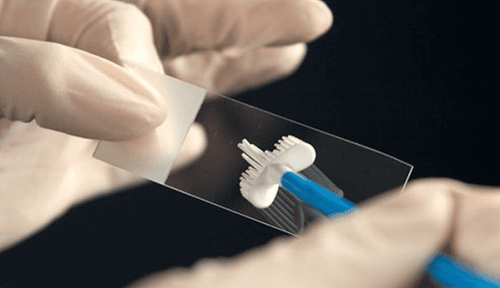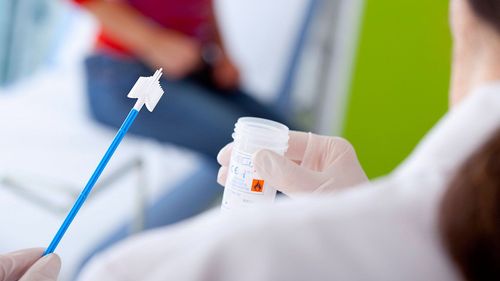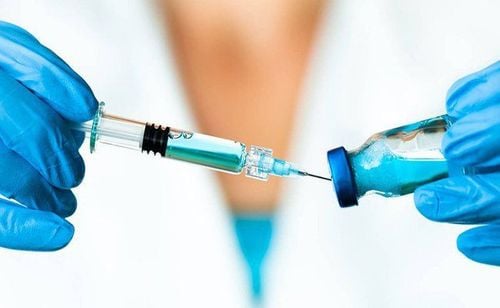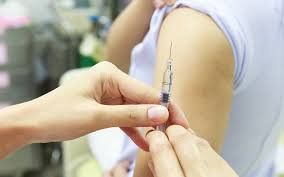This is an automatically translated article.
Cervical cancer is a malignant cancer and the leading cause of death for women. Pap test was born to help screen for cervical cancer; look for abnormal changes in cells in the cervix. From there, timely treatment measures can be taken before the disease causes dangerous complications.
1. What is a Pap test?
Pap test was invented by Georgios Nikolaou Papanikolaou (1883-1962) - a prominent Greek doctor. The main purpose of this test is to help screen for abnormal cells and cervical cancer.
2. The Pap Test Process
During the Pap test, the doctor will take a small sample of cells from the surface of the cervix, which is then mixed with a fluid or placed on a slide and examined under the microscope. microscope in the laboratory. Through this test, your doctor can look for abnormal changes or distortions of cells in your cervix.
The Pap test will be done depending on each patient's age and factors that increase the risk of cervical cancer.
For women over the age of 30, a Pap test may be ordered at the same time as an HPV test. Women under the age of 26 should be vaccinated against HPV to prevent the risk of infection with the virus, especially the strains of HPV that have a high potential to lead to cervical cancer in women.

Xét nghiệm Pap giúp tầm soát ung thư cổ tử cung
3. When should a Pap test be done?
Usually, a Pap test is used to screen for cervical cancer. The patient will have a gynecological examination along with a Pap test. You can talk directly with your doctor about deciding when to have the test and how often it should be done.Health professionals recommend that women start having a Pap test at age 21, and get tested every 2-3 years. After age 30, cervical smear can be done about every 3-5 years in case Pap test is combined with HPV test.
Your doctor will also recommend that you have a Pap test more often if you have the following risk factors:
Diagnosis of abnormalities from precancerous cells HIV infection Exposure to DES (a synthetic estrogen) before childbirth Weakened immune system due to high corticosteroid use, chemotherapy or organ transplant For women who have had a hysterectomy or have never had sex If you have sex, you should talk to a specialist about getting a Pap test done.
Besides, the Pap test is also used for people who have had a total hysterectomy to treat precancerous or cervical cancer. However, a Pap test is not recommended for people who have a hysterectomy for less serious conditions.
In addition, the decision to discontinue Pap smears will be based on the patient's previous negative test results.
4. What Pap Test Results Mean
After the test, the results will be available within 1-2 weeks. Here are what the Pap test results mean:
4.1 Normal Results The test does not show any abnormal cells.
4.2 Abnormal results The test detects distortion or abnormalities from the cells in the cervix. However, in cases where the results show only a few insignificant changes in the cells, the patient will be asked to have another Pap test immediately, or within 6 months to 1 year.
If your Pap test is positive again, then abnormal cells on the cervix have been detected. However, that doesn't mean you've got cervical cancer. Changes to cervical cells caused by HPV can range from mild, moderate, to severe.
5. When is more testing needed?
Much depends on the type of abnormal cells found in the patient's cervix. Specifically:
5.1 Atypical squamous cells (ASCUS) not identified These thin and flat cells are squamous cells that develop on the surface of the normal cervix. ASCUS occurs when these cells are atypical. The doctor will ask the patient to perform a test with a special liquid to check for a virus infection. If the results are normal, the patient will not need to worry much.
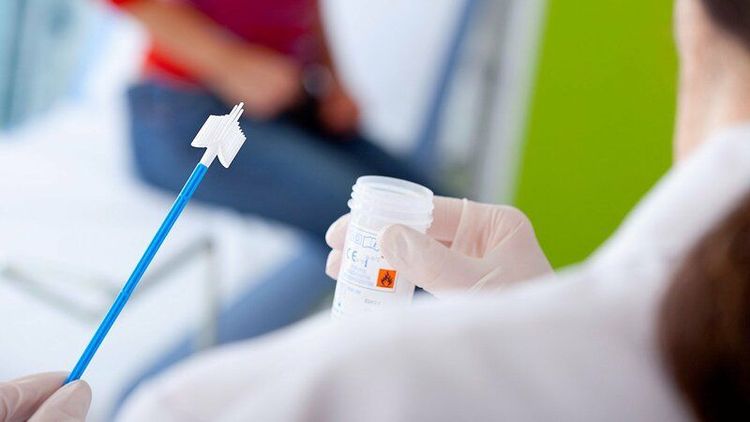
Xét nghiệm Pap giúp phát hiện ra các tế bào bất thường tại cổ tử cung nhanh và chính xác
5.2 Injury to squamous endothelial cells These cells may be indicative of a precancerous condition. There are two types of squamous endothelial cell damage, including:
Low-grade squamous endothelial cell injury (LSIL): Precancerous cells do not turn cancerous for many years. High-grade squamous endothelial cell injury (HSIL): Precancerous cells turn into cancer much earlier. 5.3 Atypical glandular cells These cells normally produce mucus. They develop mainly in the cervix. If the test shows these cells are abnormal, the doctor will ask the patient to do some more tests to know for sure if it is cancer.
5.4 Squamous cell or adenocarcinoma The results show that the cells on the patient's cervix are very abnormal, and it is almost certain that it is cancer.
To be sure, your doctor may also recommend two more tests, including a biopsy and colposcopy. During colposcopy, a speculum is inserted into your vagina. Then, examine the cervix with a colposcope. This is a device with a lens and strong light that allows the doctor to more easily see inside the cervix of the patient. In addition, the cervix will be wiped with vinegar or some other liquid solution to highlight the abnormal areas. Once the suspicious area is identified, the doctor will perform a biopsy sample, and bring it to the laboratory for examination.
In addition to preventing cervical cancer with the Pap test, you should get the HPV vaccine to achieve greater protection. Currently, at Vinmec International General Hospital, there are 2 types of HPV vaccines that help protect you from the risk of cervical cancer, including Gardasil 0.5ml (USA) and Cervarix (Belgium). Both vaccines will be given in 3 doses over 6 months. During the injection process, if you have not completed all the shots, you should avoid sex to reduce the possibility of HPV infection when the body does not have enough complete immunity.
In addition, in order to improve the quality of diagnosis and update new techniques, Vinmec Hospital officially introduced the ThinPrep Pap Test for early detection of cervical cancer to serve diagnosis and treatment at the hospital.
ThinPrep Pap Test will also help significantly reduce the false negative rate, help accurately diagnose cervical cancer at an early stage, bring high treatment efficiency, reduce the cost of cervical cancer treatment, and reduce mortality. and improve social performance.
Please dial HOTLINE for more information or register for an appointment HERE. Download MyVinmec app to make appointments faster and to manage your bookings easily.
Article referenced source: Webmd.com



